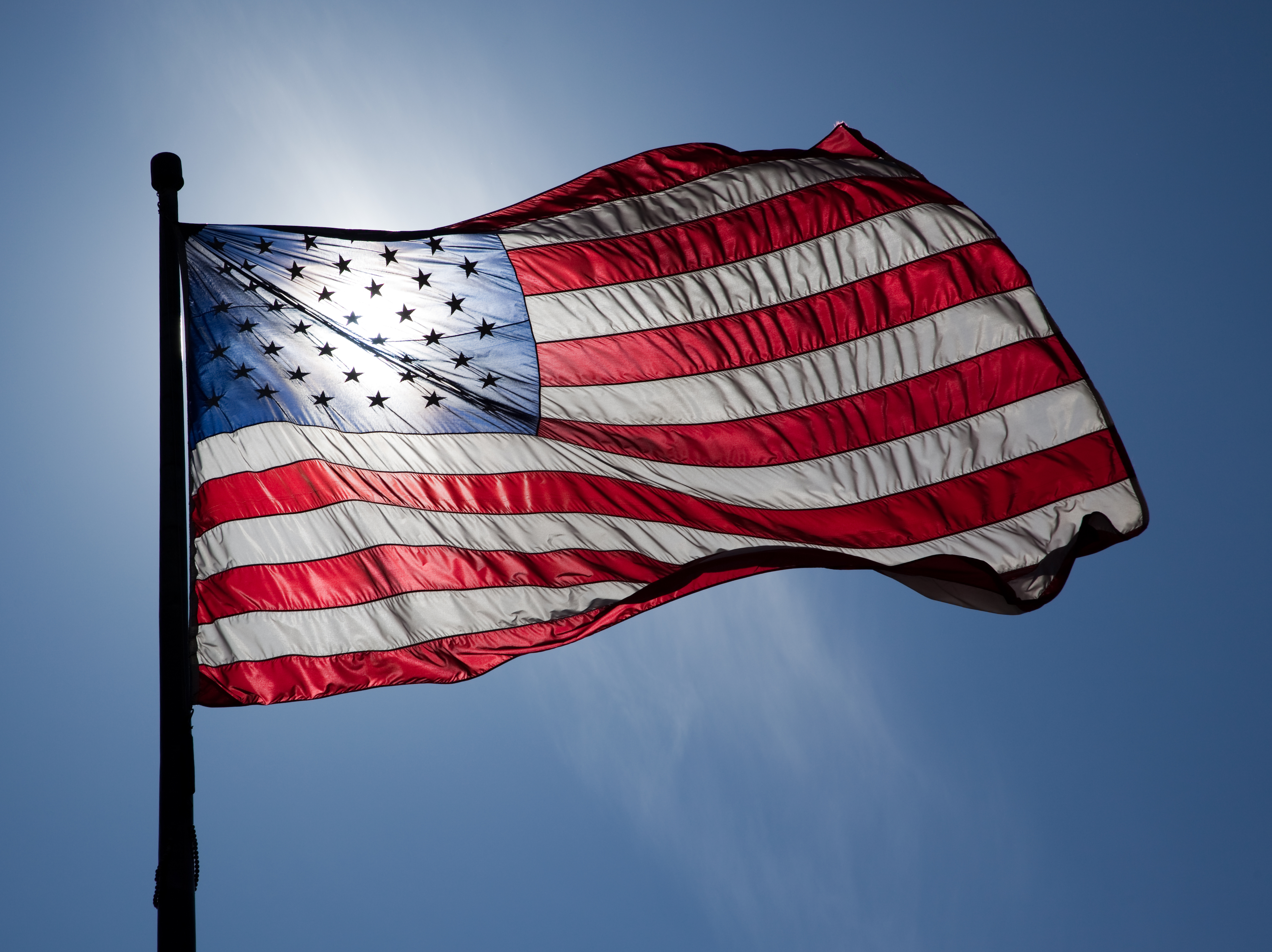 I cannot help but notice how many on the right equate patriotism with the size and number of flags you can cram onto a stage. Far-right conservatives are proud of their American flag: a field of pure whiteness, covered by streaks of red protecting a handful of white stars held aloft by the divine protection of the blue heavens. Far-right conservatives see flags like guns and cars and women: the more you have and the bigger and better looking they are, the more “American” you must be.
I cannot help but notice how many on the right equate patriotism with the size and number of flags you can cram onto a stage. Far-right conservatives are proud of their American flag: a field of pure whiteness, covered by streaks of red protecting a handful of white stars held aloft by the divine protection of the blue heavens. Far-right conservatives see flags like guns and cars and women: the more you have and the bigger and better looking they are, the more “American” you must be.
True patriotism, however, is not simply about the mere symbol, but about what that symbol represents: policies and actions. The flag must represent the actions of standing up, acting on behalf of your fellow Americans, serving them, treating them fairly, and the willingness to give your life for them, as so many of our veterans have done. It must also represent the establishment of policies, both personal and civil policies, that bring about our ideals.
The flag is a symbol, and symbols represent ideas and ideals. And if your ideas are bad ideas—if they are divisive, and bigoted, and harmful—then it doesn’t matter how many flags you have. You can line up a row of massive flags from one end of the stage to the other—if your ideas are bad ideas, and your ideals do not treat all Americans equally and with respect, you cannot simply paper over selfish ideals and bad policies with the American flag. Because when you do, the symbol becomes an idol—an end in itself. And much like the crosses on the walls, and around the necks and wrists, and on the car bumpers of those who do not live lives reflective of the teachings of the man associated with that cross, the idol comes to represent nothing at all. And this is why those that worship their star-spangled idol flood their stages with the idol: they hope that none will notice that their idol is empty, and that their lives do not reflect the selfless service that the idol once represented.

Republican Presidential candidate Donald Trump receiving his party’s 2016 nomination in Cleveland, Ohio.
Filed under: politics, united states | Tagged: convention, democrats, flag, idolatry, patriotism, republican, Trump, United States, us | 4 Comments »


